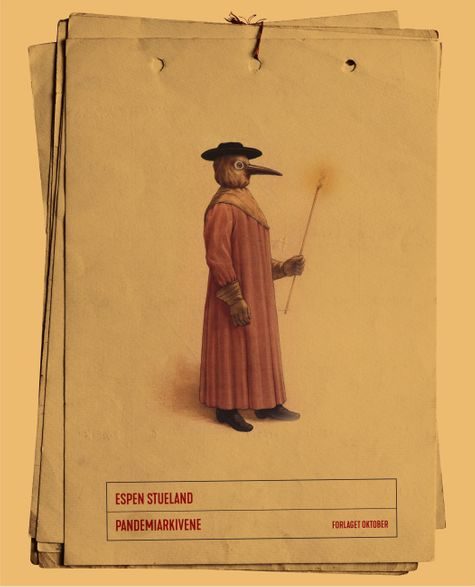The Pandemic Archives
Nominated for the Critics’ Prize 2021
The coronavirus crisis is powerful reminder of the fact that the body is much more than a vessel for our free an independent self-development. The body is a part of nature, vulnerable because it is connected to all other forms of life – even a virus from a bat.
Even if the present pandemic creates a situation that is fundamentally new to all of us, it isn’t new in human history. In stories of plague and pandemics we are met with descriptions of the tribulations that face both societies and individuals: How do we stop the disease from spreading? How do we take care of our duties to our fellow humans? How do we care for the sick, bury the dead and at the same time avoid infection? In short: How do we survive?
In The Pandemic Archives, Stueland explores literary representations of how everyday life is redefined by quarantine rules, fear, heartbreaking goodbyes, and self-sacrificing relief work. He also examines the medical aspects, using literature as a guide to understand medical and political responses to biological events.
The Critics’ Prize jury’s nomination statement:
“It’s easy to read about how pandemics where handled in the past with a kind of condescending distance: They didn’t have vaccines, and they didn’t understand contagion, the course of the illness or correct diagnostics, nor did they have access to anything of what modern medicine can offer. The author Espen Stueland is capable of diving into the pandemics of history with a curiosity that makes the outbreaks of disease almost unbearably vivid to the reader. He investigates both plague and cholera: He reads closely texts about the outbreak of plague in London in 1666 by the author of Robinson Crusoe, Daniel Defoe, together with reports by contemporary medical authorities. He visits outbreaks of cholera in Christiania and Drammen in the middle of the 19th century, and investigates how persistent a medical paradigm can be; incredibly, miasmatic theory wasn’t abandoned until the end of the 19th century. In spite of his large source material and sophisticated close readings of several centuries old medical descriptions, The Pandemic Archives has become a captivating story of life and death, and of what it means to be human when entire societies collapse.”

